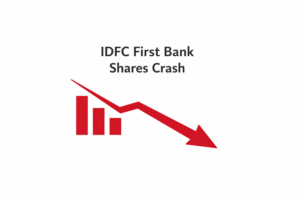The top 5 small-cap stocks for 2025

Navigating the stock market investment landscape can be mindboggling for retail investors given the sheer number and variety of stocks available for trading. Hence, it is important to classify them into different stock categories to understand and evaluate them better. Classifying stocks by market capitalization is a popular and trusted market norm. Accordingly, small-cap stocks form a large category, along with other variants such as mid- and large-cap stocks. Understanding what makes a stock large, mid, or small-cap stock can help you create a well-diversified portfolio for long-term financial success.
In the current bull run in the Indian market, blue-chip companies have given good returns. However, smallcap companies are the stock market darlings, giving stellar returns. Let’s understand what small-cap stocks are and why you should invest in them.
What are small-cap stocks?
Before we classify a company based on market capitalization, let’s understand what is market capitalization or market cap, and how it is calculated.
Market capitalization = Total number of outstanding shares x current market price
Market cap calculation is simple. Based on market capitalization, stocks are classified into three categories. The market cap classification as per SEBI rules is as follows:
- Large-cap stocks: Top 100 listed companies by market cap
- Mid-cap stocks: 101 to 250 ranked by market cap
- Small-cap stocks: 251st rank onwards in terms of market cap
Thus, as per SEBI norms followed by mutual funds, any company that doesn’t fall in the first 250 largest firms by market cap is a small-cap company. Usually, the market capitalization of small-cap companies will be less than or equal to Rs. 5,000 crore.
The Nifty Smallcap 100 and BSE Smallcap are the two indices that track upcoming companies. Following these indices is a good way to track small-cap companies and identify some of the best small-cap stocks by their performance.
Who should invest in small-cap stocks?
The fundamental rule of ‘high-risk, high-return’ holds good for investment in small-cap stocks. So, while small-cap stocks can give stellar returns, they pose a considerable risk compared to large-cap stocks. However, the higher risk profile of small-cap stocks makes them best suited for investment for the following types of investors:
– Growth-oriented investors
Investors looking to capitalize on the potential of the small-cap stock for substantial returns.
– Risk-tolerant investors
Individuals with the means and the appetite to tolerate higher risk posed by these stocks in exchange for higher growth potential.
– Long-term investors
A promising small-cap company today can be a mid-cap or a large-cap company in the future and small-cap investors can benefit from the company’s growth and earn top dollar for their investment. Besides, a long-term investor also benefits from time in the market, potentially riding market fluctuations.
– Diversified portfolio seekers
It is a prudent investment practice to build a diversified investment portfolio. Investing a portion of your portfolio in small-cap stocks adds some flavor to your portfolio while balancing the risk-return tradeoff.
Top 5 best small-cap stocks to invest in 2025
Here are the top 5 small-cap stocks you can invest in in 2025 to maximize your portfolio growth.
These individual stocks represent different narratives and investment themes. BEML is a stable small-cap stock in aerospace and defense, IEX has a near monopoly in the energy exchange space, and Engineers India Ltd. is a strong PSU contender in the infrastructure development and operations segment. Our picks in housing finance and banking segments are HUDCO, a leading player in the housing finance space set to benefit the government housing schemes and Ujjivan SFB, a promising small finance bank with relatively low PE, making them good investment options for long-term gains.
1. BEML
Industry: Aerospace & Defence
BEML, a Miniratna PSU, operates in diverse sectors such as defense and aerospace, mining and construction, not to mention rail and metro. The company manufactures a wide range of heavy earth-moving equipment, vehicles for defense forces, and metro train coaches. It has a strong order book and is expected to post strong growth in the coming years.
BEML is set to benefit from the Indianizaton for the defense sector and the growing network of railways and metro networks in the country. BEML is trading at a P/E multiple of 73.4 which is lower than the peer group average of 94.6, as of July 2024. This makes BEML a good long-term investment opportunity.
2. Indian Energy Exchange (IEX)
Industry: Energy Exchange
IEX provides an automated platform and infrastructure for carrying out trading in electricity units for physical delivery of electricity.
The company is the first power exchange licensed by the Central Electricity Regulatory Commission (CERC) for spot trading in electricity and trading of Renewal Energy Certificates (REC) and ESCerts. The exchange platform enables efficient price discovery and increases the accessibility and transparency of the power market in India while also enhancing the speed and efficiency of trade execution.
While India is home to two other power exchanges, IEX enjoys a near monopoly position, with nearly 94% of the energy and electricity exchange space market share.
The company’s preeminent status in the industry and the overall increase in trading activity and strong results make IEX one of the best small companies to invest in 2025.
3. Engineers India (EIL)
Industry: Infrastructure Development and Operations
EIL provides consultancy and engineering services. It undertakes turnkey contracts, which include a complete range of project services from project conceptualization, planning, design, engineering, procurement, construction, and commissioning per the client’s requirement.
EIL operates in various industries such as petroleum refining, petrochemicals, pipelines, oil & gas, terminals & storages, mining & metallurgy, infrastructure, water and waste management, city gas distribution, power-thermal, solar, nuclear, gas-based fertilizer projects, coal-to-liquid (CTL) and steel.
The company has a good balance of Consultancy & Engg Projects; 43% and Turnkey Projects; 57% with a presence both in India and overseas.
EIL presents a good buying opportunity in the small-cap stocks segment for 2025.
4. Housing & Urban Development Corporation Ltd (HUDCO)
Industry: Housing Finance
HUDCO is primarily engaged in the business of financing social housing and urban development activities in India. Additionally, it also provides consultancy services for major projects and government programs.
HUDCO’s loans are primarily concentrated in two states; Telangana and Andhra Pradesh. The advances to these states account for 155% of the company’s net worth. Government project financing translates to a low-risk profile for HUDCO as state governments and their agencies carry a lower risk.
The government of India holds a 75% stake in the company. It also has well-established relations with several state governments, making it a preferred lender for their urban infra and housing projects.
As the government push for affordable housing increases, HUDCO is likely to be at the forefront of financing government-undertaken housing projects. This makes HUDCO a good small cap for the year 2025.
5. Ujjivan Small Finance Bank (UjjivanSFB)
Industry – Private Sector Small Finance Bank
Ujjivan Small Finance Bank Limited is a mass market-focused bank in India, catering to financially unserved and underserved segments and committed to building financial inclusion in the country. It started its operations as Ujjivan Financial Services Limited, a non-banking financial company in 2005 to provide financial services to the ‘economically active poor’ who were not adequately served by financial institutions.
The bank recently completed its reverse merger with Ujjivan Financial Services. The stock is settling after the merger, presenting a good buying opportunity for investors.
Ujjivan has strong fundamentals and has delivered good profit growth of 45.0% CAGR over the last 5 years.
The table below presents the valuation metrics of the top 5 small cap stocks for 2025.
| Name | Price | 1-year return | 5-year return | PE | Industry PE |
| BEML | ₹4,957 | 209% | 466% | 73.4 | 94.6 |
| IEX | ₹174 | 40% | 265% | 44.9 | 60.2 |
| EIL | ₹259.4 | 115.21% | 134% | 32.68 | 38.77 |
| HUDCO | ₹327 | 453% | 746.44% | 30.88 | 23.69 |
| Ujjivan SFB | ₹44.77 | 8.06% | – | 6.75 | 12.32 |
The above list is based on academic research and is not investment advice. As an investor, you should always research all buying opportunities before investing. Additionally, it is recommended that you build your position in a stock gradually.
The benefits and risks associated with small-cap stock investment
Benefits
Investing in small-cap stocks can be beneficial in many ways.
- High-growth potential
Smaller companies have the potential to grow faster compared to larger companies. These small-cap investments have the potential for higher returns.
- Diversification
Small-cap stocks in a portfolio help build a well-diversified portfolio, reducing overall investment risk.
- Investing in new-age tech and Innovative companies:
Small-cap companies are likely to operate in new-age industries and use innovative technologies. Investing in them can help you get your hands on the share of these companies before they grow bigger.
Risks
However, there are downsides to investing in small-cap stocks:
- High-risk investment
High risk, high return. This is true for small-cap stocks, the biggest risk in investing in small companies.
- Higher chances of economic impact
Small-cap firms are more likely to be impacted by adverse economic conditions. Economic growth or downturns can significantly impact small-cap companies.
- Market sentiment
Small-cap stocks are volatile and thus more susceptible to extreme market movements. These stocks might come under selling pressure during a downturn and extreme buying pressure during an upbeat market.
- Higher susceptibility to market manipulation
Small-cap stocks are easy to manipulate as their market capitalization is way below that of mid-caps or large-cap stocks. This makes them more prone to manipulations.
Conclusion
Small-cap stocks are a great addition to your portfolio as they help balance the risk while offering the potential for higher returns. Strong, innovative small-cap stocks have the potential to become mid-cap stocks tomorrow. You can benefit from this potential growth by investing in stock early on.
Disclaimer
The stocks mentioned in this article are not recommendations. Please conduct your own research and due diligence before investing. Investment in securities market are subject to market risks, read all the related documents carefully before investing. Please read the Risk Disclosure documents carefully before investing in Equity Shares, Derivatives, Mutual fund, and/or other instruments traded on the Stock Exchanges. As investments are subject to market risks and price fluctuation risk, there is no assurance or guarantee that the investment objectives shall be achieved. Lemonn do not guarantee any assured returns on any investments. Past performance of securities/instruments is not indicative of their future performance.
To read the RA disclaimer
Research Analyst - Gaurav Garg







